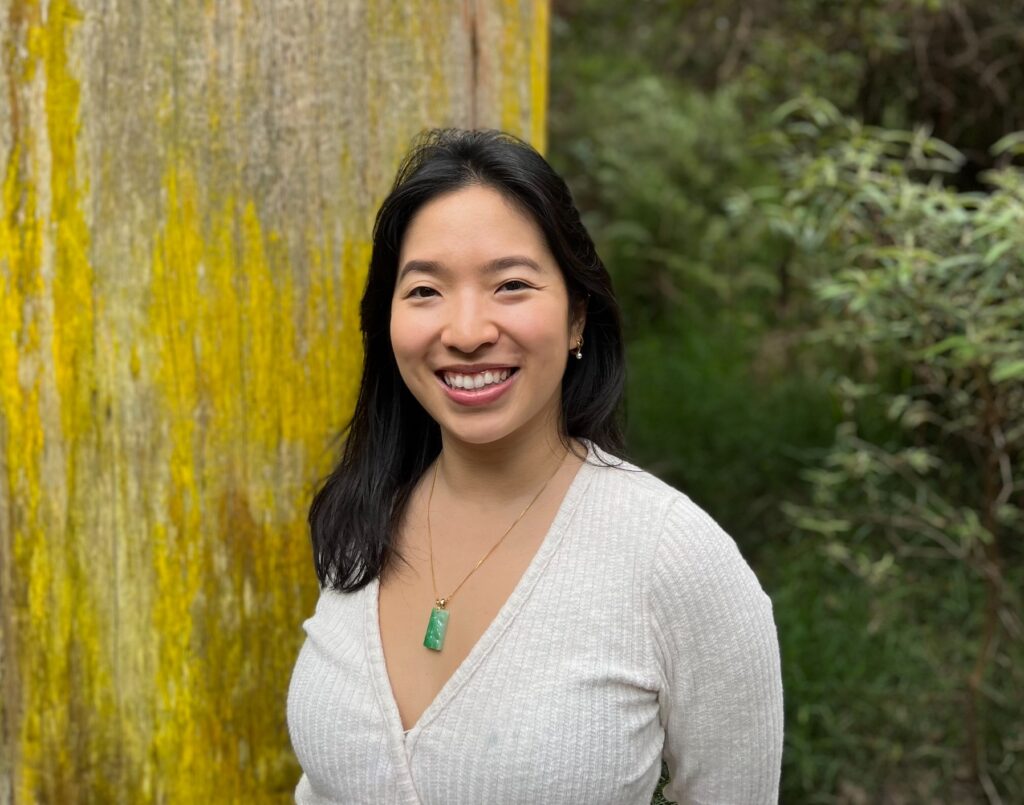People profile heads. Seamless pattern of a crowd of many different people profile heads. Vector background.

Celebrating AAPI Month at RMI
For Asian American and Pacific Islander Heritage Month, we hear from RMIers on how their background informs their work toward a clean, sustainable future.
May is Asian American and Pacific Islander (AAPI) Heritage Month, a time to honor those whose roots lie across the Pacific and beyond. RMI is proud of the diversity among its 700 staff based not only in the United States but throughout the world, including staff in Beijing, Delhi, and a host of Pacific islands through the Climate Finance Access Network.
While we celebrate our colleagues, we recognize that the Asian continent and the Pacific region are likely to see many of the worst effects of climate change: temperatures in Asia are rising twice as fast as the global average, and the Asia-Pacific region saw the highest proportion of weather-related disasters during the past decade. This underscores the need to transition away from polluting fossil fuels and embrace our clean energy future.
We spoke to some of our RMI team who identify as Asian or AAPI to share their stories and how their roots help inform their work.

Selena Kay Galeos, Associate, Carbon-Free Electricity Team
Selena Kay Galeos works on facilitating the shift from fossil fuels to clean energy in emerging markets and developing economies, specifically in regions such as Indonesia and the Philippines. Originally from Davao City in the southern Philippines, Selena grew up in the capital, Manila, before moving her life to the United States to pursue further studies.
Selena’s journey to the climate change space started early, when a passion for the environment — especially the ocean — ignited a desire to make an impact.
She is most excited about her work tackling challenges in the Global South, which involves both supporting and collaborating closely with decision makers. She says it’s “incredibly rewarding” to see tangible progress in an area where such unique sensitivities and complexities exist.
Although she is now based in the United States, Selena has not forgotten her roots: “My Philippine heritage has profoundly shaped my identity, and no matter where life takes me, it will always be my home.”
 Jay Sriram, Learning and Leadership Partner, Learning and Development Team
Jay Sriram, Learning and Leadership Partner, Learning and Development Team
Jay works behind the scenes at RMI as an in-house learning expert, which includes honing the employee training curriculum and looking for ways to strengthen RMI’s workforce through skills assessments and employee mentorship.
Her climate journey can be traced to her background in biology, where her fascination with living systems broadened from cells to entire ecosystems. Jay is happy that she gets to merge her passion for living systems and learning into her day-to-day work. She is most excited to help employees transition into a new role, where feelings of isolation can make getting down to work difficult. “What truly excites me is the opportunity to be part of RMIers’ career journey, particularly during such significant moments, in a meaningful and supportive manner,” Jay says.
Originally from Chennai, India, Jay has been based in St. Louis, Missouri, for the past two decades. Jay still makes time to visit Chennai, where she has witnessed firsthand the devastating effects of climate change — from extreme flooding to the health crises that follow — and shares the pain it has caused her family members.
 Apoorva Sahay, Senior Associate, Climate Intelligence Team
Apoorva Sahay, Senior Associate, Climate Intelligence Team
Apoorva works in RMI’s Carbon Markets Initiative where she develops educational programming on carbon markets topics, advises buyers on data forward approaches to using voluntary carbon credits, and promotes equitable climate outcomes.
Apoorva grew up in India, among a family of writers, academics, and activists where she learned the value of civil society reform and grassroots organizing to drive environmental justice and social inclusion. Her interest in climate change initially came from her anthropological studies of Indian artisans and how development forces were disrupting their low-carbon lifestyles.
Apoorva enjoys the fact-finding, heuristic nature of her job. “I enjoy the process of connecting dots between where we are and where we want to be because it requires imagination and courage,” she says.
While she is aware that the Asian continent is highly climate vulnerable, she also sees deep cultural resilience. “Almost everyone I talk to is worried about environmental impacts, but more importantly, our communities are on the forefront of innovative climate solutions — ready to, as Arundhati Roy writes, ‘imagine another world.’”
 Jale Samuwai, Manager, Climate Finance Access Network
Jale Samuwai, Manager, Climate Finance Access Network
Jale is a manager on RMI’s Climate Finance Access Network (CFAN) team, helping coordinate climate capital across 10 countries, one territory, and one Direct Access Entity in the Pacific region and building long-lasting capacity on the ground. His work advising decision makers and partners in the Pacific region is a natural fit: his clan in his native Fiji are traditionally the advisers and counselors to the district’s High Chief.
Jale works among communities that are already bearing the brunt of climate change’s worst impact, which means that climate is part of every development discussion. “Given the lived reality of most Pacific Islanders to the impacts of climate change, it has been elevated in the region as critical to our very survival.”
He is heartened by the tangible gains CFAN has made throughout the region, helping mobilize $63 million (with $464 million climate projects in the pipeline). “Accessing climate finance is a constant challenge for Pacific Countries, and the innovative yet grounded approach that CFAN brings in helping build sustainable capacity in the region that is being put to use to engage the climate finance landscape is a testament to how impactful and fit for purpose the program has been so far,” he says.
Extreme weather events, such as category 5 hurricanes, severe flooding, and prolonged droughts mean that island nations are in a state of “constant preparation,” and in “rebuilding mode,” Jale says, making it extremely difficult to plan and grow local economies. “Without predictable support from development partners, adapting and building our resilience to extreme weather events will become more challenging in the future,” Jale says. The urgency for global energy transition is essential given its direct correlation to the core driver of the climate crisis, he says, to keeping lives livable in this vulnerable region.
 Yu Ann Tan, Senior Associate, Carbon-Free Buildings Team
Yu Ann Tan, Senior Associate, Carbon-Free Buildings Team
At RMI, Yu Ann works closely with decision makers and community groups to design policy and conduct research on the co-benefits of transitioning US buildings away from fossil fuels.
Originally from Singapore and with Chinese heritage, Yu Ann spent her youth living in a number of East and Southeast Asian countries before moving to New York where she is now based. Before coming to RMI, Yu Ann worked on transitional justice and post-conflict resolution issues, which helped her understand how climate change has a pronounced negative impact on socioeconomically disadvantaged populations.
She sees justice as a key part of her work and says that the “opportunity to dismantle deep-seated legacies of racism and oppression whether at an individual or systemic level” keeps her motivated.
Yu Ann highlights that although the climate crisis is a global challenge, the distribution of hardship and suffering is still determined by race, ethnicity, and national origin: “The discrimination that is at the core of this climate and ecological crisis continues to entrench certain populations more so than others in cycles of vulnerability, exploitation, and harm.”